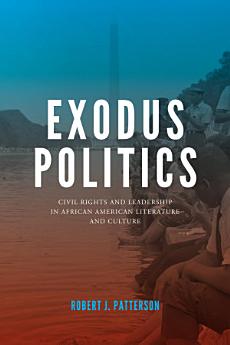Exodus Politics: Civil Rights and Leadership in African American Literature and Culture
About this ebook
The author turns to contemporary African American writers such as Ernest Gaines, Gayl Jones, Alice Walker, and Charles Johnson to show how they challenge the dominant models of civil rights leadership.
He draws on a variety of disciplines—including black feminism, civil rights history, cultural studies, and liberation theology—in order to develop a more nuanced formulation of black subjectivity and politics.
Patterson's connection of the concept of racial rights to gender and sexual rights allows him to illuminate the literature's promotion of more expansive models. By considering the competing and varied political interests of black communities, these writers reimagine the dominant models in a way that can empower communities to be self-sustaining in the absence of a messianic male leader.
Ratings and reviews
About the author
Robert J. Patterson is Associate Professor of English and Director of the African American Studies Program at Georgetown University.




